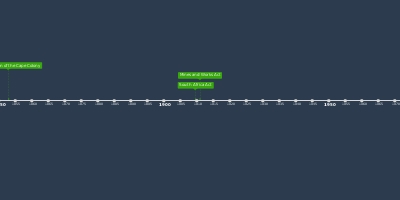21 marzo 1960 anni - The Sharpville Massacre
Descrizione:
The infamous Sharpville Massacre took place on 21 March 1960, when White policemen opened fire on a crowd of demonstrators outside a police station at a township on the outskirts of Vereeniging, some 60 kilometres south of Johannesburg.In total, 69 unarmed demonstrators were killed, including 8 women and 10 children, and 186 people were injured.
It was an event that caused shock around the world as well as within South Africa.
It also fundamentally altered the course of the liberation struggle.
One of the main results of the massacre was the decision of the AN to abandon its strategy of peaceful resistance to apartheid and instead embrace armed struggle.
Many non-White South Africans were outraged by what had happened.
There were horrified not only by the massacre but also by the response of the government.
Prime Minister Verwoerd seemed to embody the callousness and indifference of his government to the human suffering when he addressed a crowd of nationalist supporters shortly afterwards.
He reassured them that the huge majority of Africans were peace-loving citizens who fully supported his policies and that most of the protesters had been coerced into demonstrating by the ANC and Pan Africanist Congress (PAC), a breakaway Africanist organization officially formed in early 1959.
His opinion was wildly at odds with the violence and bloodshed that now threatened to engulf the country.
Repeated clashes between police and protesters - at Langa near Cape Town on the same day as Sharpville, and at Langa and elsewhere in the country in the following days and weeks - resulted in many more fatalities.
Verwoerd's response to the escalating crisis wa typically bold and a state of emergency was declared on 30 March 1960.
Thousands of ANC and PAC leaders were arrested and all political gatherings were outlawed.
On 8 April, after passed the Unlawful Organizations Act, the government officially banned the two resistance movements.
As an illegal organization, the ANC was now clearly running out op options if it wished to continue offering meaningful resistance to apartheid.
With the movement now completely at the mercy of the state, it seemed that the only viable route was to go underground and begin armed struggle against the regime.
Nelson Mandela, by now a fugitive on the run from the authorities and himself long convinced of the necessity of armed struggle, finally managed to persuade the ANC leadership at a secret party congress in July 1961.
By the end of the year the armed wing of the movement, Umkhonto we Sizwe (known as MK) had been created.
MK immediately began its sabotage operations against the apartheid state.
One hugely important consequence of the Sharpville massacre was the sea change it brought about in global opinion.
This turned decisively against South Africa after the incident.
The historian Tom Lodge argues that, while the regime was strengthened in the short term by its crackdown on African nationalism, the Sharpville massacre marked the true beginning of the international campaign against apartheid.
Britain had already sounded a warning to South Africa with Harold MacMillan's "Winds of change" speech in Cape Town in February 1960, in which the British prime minister argued that the legitimate nationalist aspirations of Africans would eventually have to be met.
Now, after the Sharpville massacre, the country's international isolation began in earnest.
Economic sanctions were applied for the first time, despite the refusal of South Africa's major trading partners, Britain and the USA, to agree to a global trade embargo.
Strong pressure from newly independent states led to South Africa being forced out of the British Commonwealth, it first major diplomatic setback, and becoming a republic in 1961.
Aggiunto al nastro di tempo:
Data:
21 marzo 1960 anni
Adesso
~ 65 years ago
